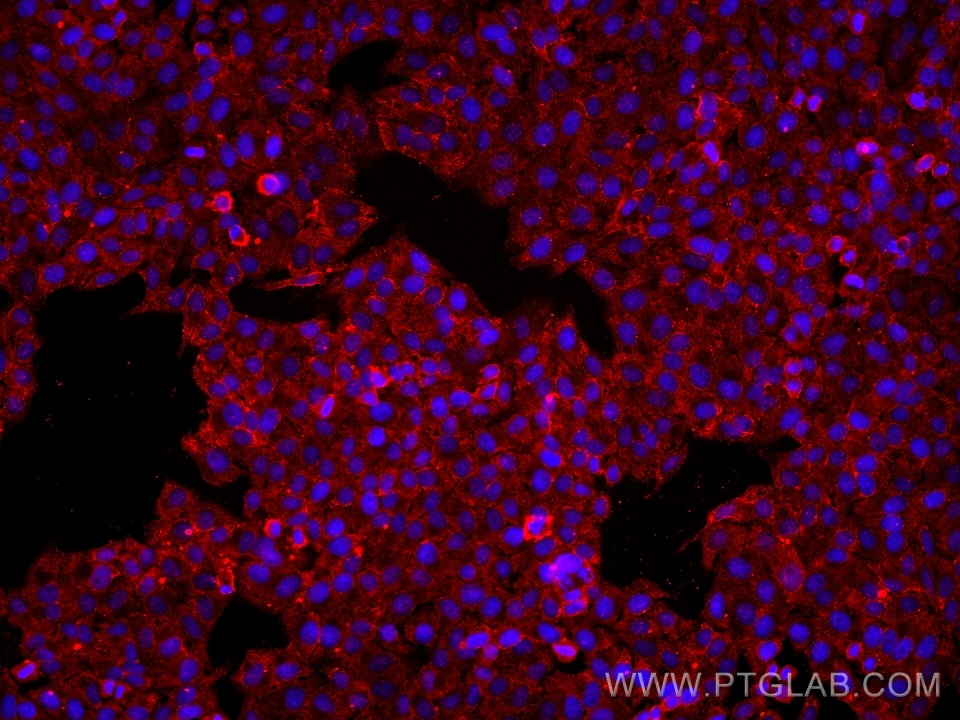Anticorps Monoclonal anti-ATP5L
ATP5L Monoclonal Antibody for IF/ICC, ELISA
Hôte / Isotype
Mouse / IgG1
Réactivité testée
Humain
Applications
IF/ICC, ELISA
Conjugaison
Non conjugué
CloneNo.
2D10F9
N° de cat : 60434-1-Ig
Synonymes
Galerie de données de validation
Applications testées
| Résultats positifs en IF/ICC | cellules HepG2, |
Dilution recommandée
| Application | Dilution |
|---|---|
| Immunofluorescence (IF)/ICC | IF/ICC : 1:500-1:2000 |
| It is recommended that this reagent should be titrated in each testing system to obtain optimal results. | |
| Sample-dependent, check data in validation data gallery | |
Informations sur le produit
60434-1-Ig cible ATP5L dans les applications de IF/ICC, ELISA et montre une réactivité avec des échantillons Humain
| Réactivité | Humain |
| Hôte / Isotype | Mouse / IgG1 |
| Clonalité | Monoclonal |
| Type | Anticorps |
| Immunogène | ATP5L Protéine recombinante Ag9287 |
| Nom complet | ATP synthase, H+ transporting, mitochondrial F0 complex, subunit G |
| Masse moléculaire calculée | 11 kDa |
| Numéro d’acquisition GenBank | BC015128 |
| Symbole du gène | ATP5L |
| Identification du gène (NCBI) | 10632 |
| Conjugaison | Non conjugué |
| Forme | Liquide |
| Méthode de purification | Purification par protéine G |
| Tampon de stockage | PBS with 0.02% sodium azide and 50% glycerol |
| Conditions de stockage | Stocker à -20°C. Stable pendant un an après l'expédition. L'aliquotage n'est pas nécessaire pour le stockage à -20oC Les 20ul contiennent 0,1% de BSA. |
Informations générales
Mitochondrial membrane ATP synthase (F1-Fo ATP synthase or Complex V) produces ATP from ADP in the presence of a proton gradient across the membrane which is generated by electron transport complexes of the respiratory chain. It is composed of the soluble catalytic core, F1, and the membrane-spanning component and Fo, which comprises the proton channel. The Fo seems to have nine subunits (a, b, c, d, e, f, g, F6 and 8). ATP5L gene encodes ATP synthase subunit g of the Fo complex.
Protocole
| Product Specific Protocols | |
|---|---|
| IF protocol for ATP5L antibody 60434-1-Ig | Download protocol |
| Standard Protocols | |
|---|---|
| Click here to view our Standard Protocols |


